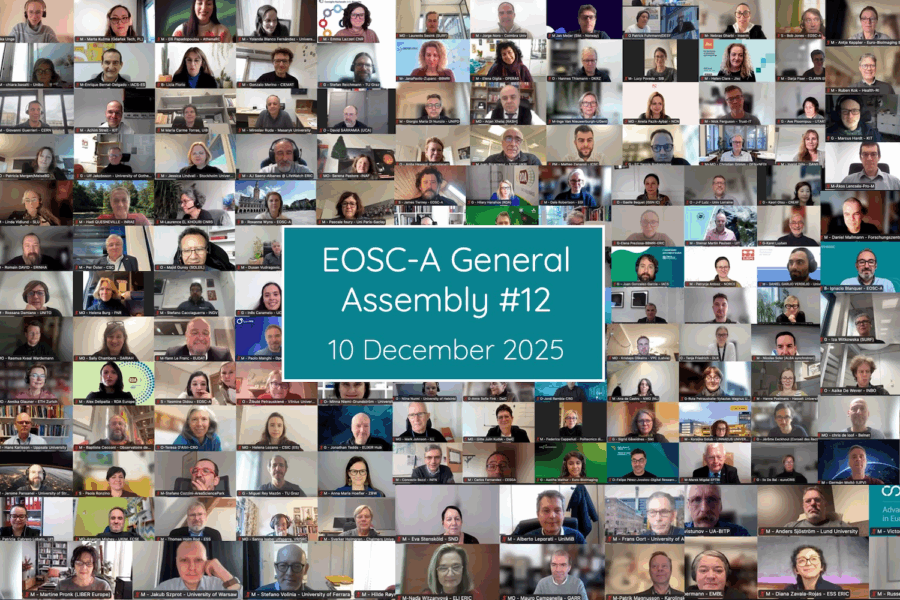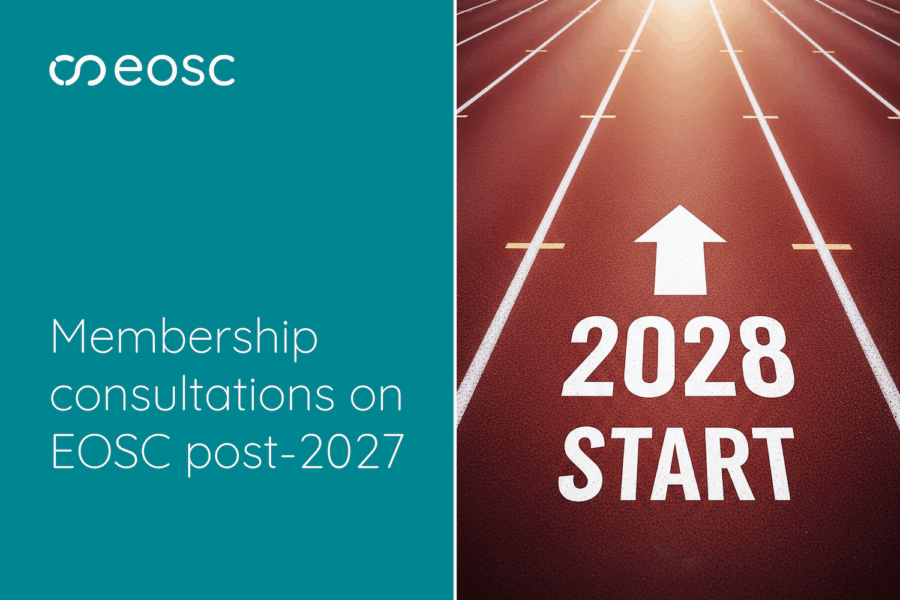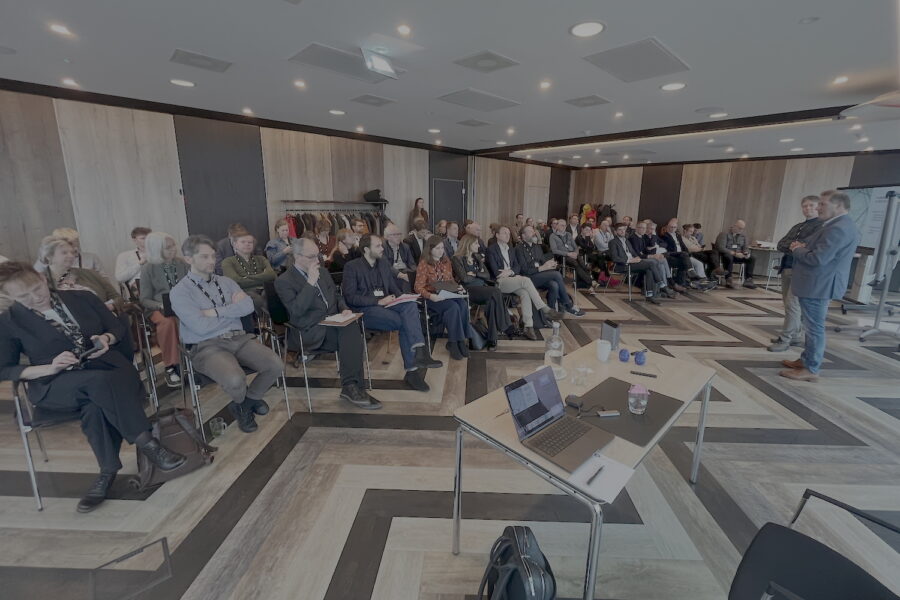BRUSSELS — The EOSC Association’s (EOSC-A) rue du Luxembourg headquarters served as the site for a joint session on “Accelerating the Transition to Open Science” on Monday, 12 June. The exchange was framed as an exploration of the possible pathways for impact to accelerate the transition to Open Science, in particular the role of FAIR data.
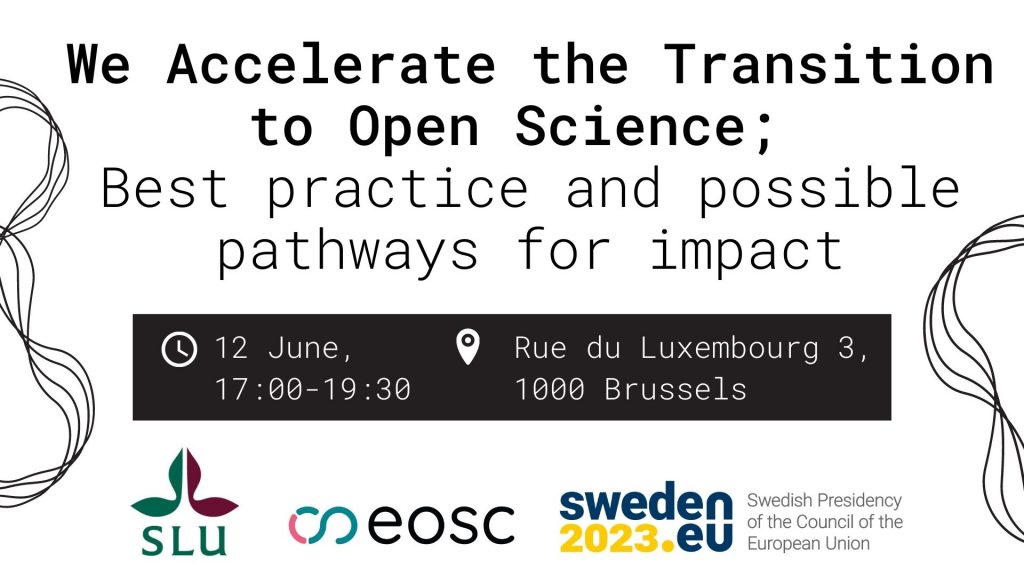
The meeting was co-hosted by EOSC-A member, the Swedish University of Agricultural Sciences (SLU), and EOSC-A Mandated Organisation for Sweden, the Swedish Research Council (VR). The after-work was billed as part of the build-up to the Swedish Presidency of the Council of the European Union’s conference on “The Potential of Research Data”, which will be held 19-20 June in Lund, Sweden.
The energetic gathering featured keynote presentations by SLU’s Pro Vice-Chancellor for Collaboration and Environmental Monitoring & Assessment Anna Lundhagen; Senior Research Officer at VR Sumithra Velupillai; and EOSC Association President Karel Luyben.
Lundhagen addressed the implementation of an Open Science strategy in Sweden, highlighting that “the transformation from where we are now to Open Science is not only about getting the infrastructure in place but is also about culture and the steps to be taken”.
Velupillai described VR’s activities in relation to the general objectives of EOSC and the importance to focus on research data and research infrastructures, key priorities from the Presidency @sweden2023eu.
Luyben made a presentation of the case for how the implementation of the European Open Science Cloud takes Open Science to the “next level”.
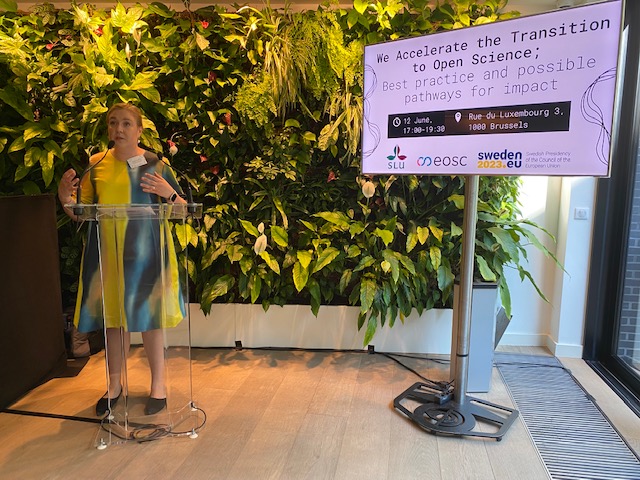 | 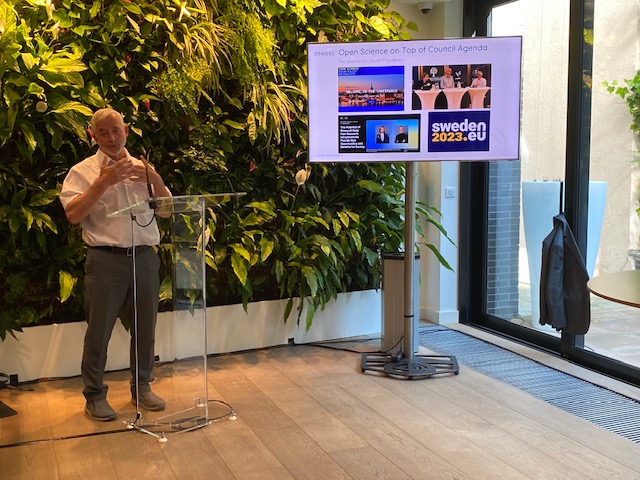 |
 | 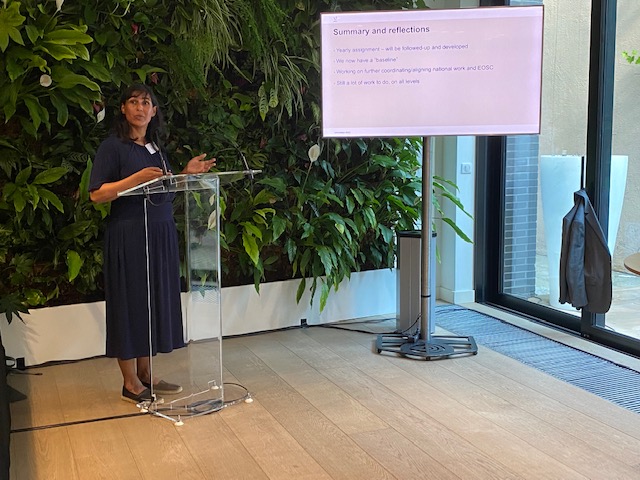 |
The esteemed group of participants included representation from the European Commission, the European University Association, and several members of the EOSC Association, including universities, funding agencies and research-performing organisations from around Europe.
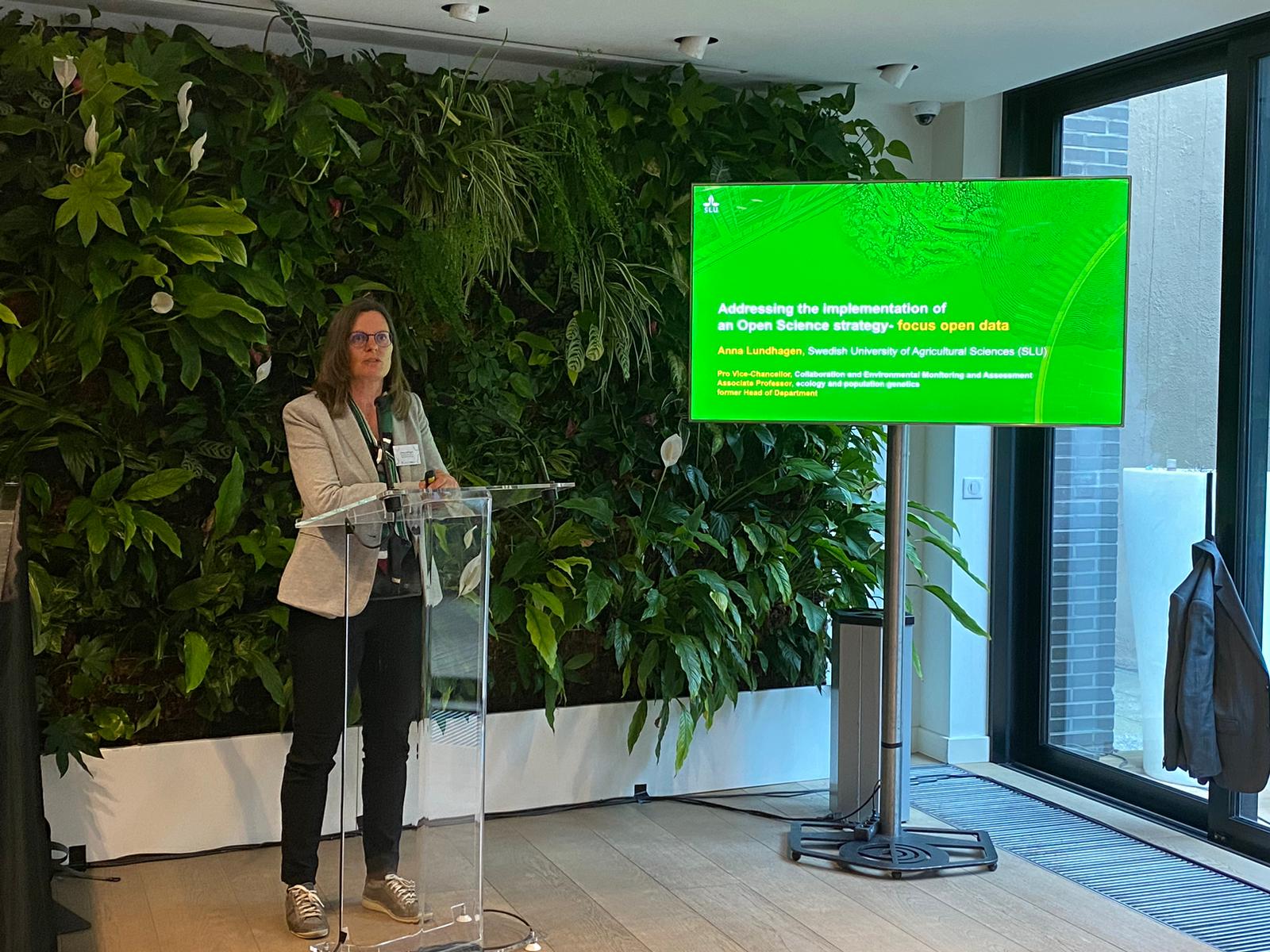
The talks were followed by a reception that provided an opportunity for the large group representing nearly 60 different organisations to make new connections and coordinate on common objectives in the push to advance Open Science in Europe.
Karel Luyben said, “As the voice of the community working to implement the European Open Science Cloud, the EOSC Association is proud to have brought together such a diverse group of people and organisations here in Brussels. The event has brought attention to two things that we anticipate will be of great significance to the development of EOSC in the second half of 2023: the Swedish Presidency’s focus on accelerating the transition to Open Science, and the parallel drive by several key actors to establish Open Science practices as the new normal in scientific publishing.”

